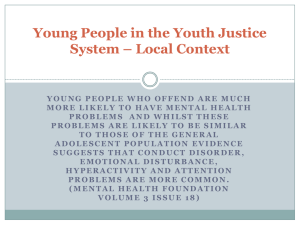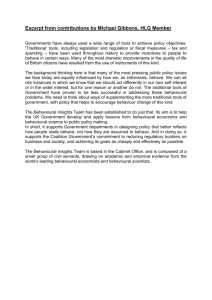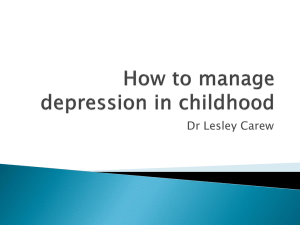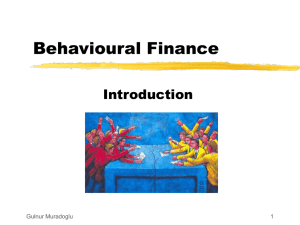Behavioural Finance - of Enrico De Giorgi
advertisement
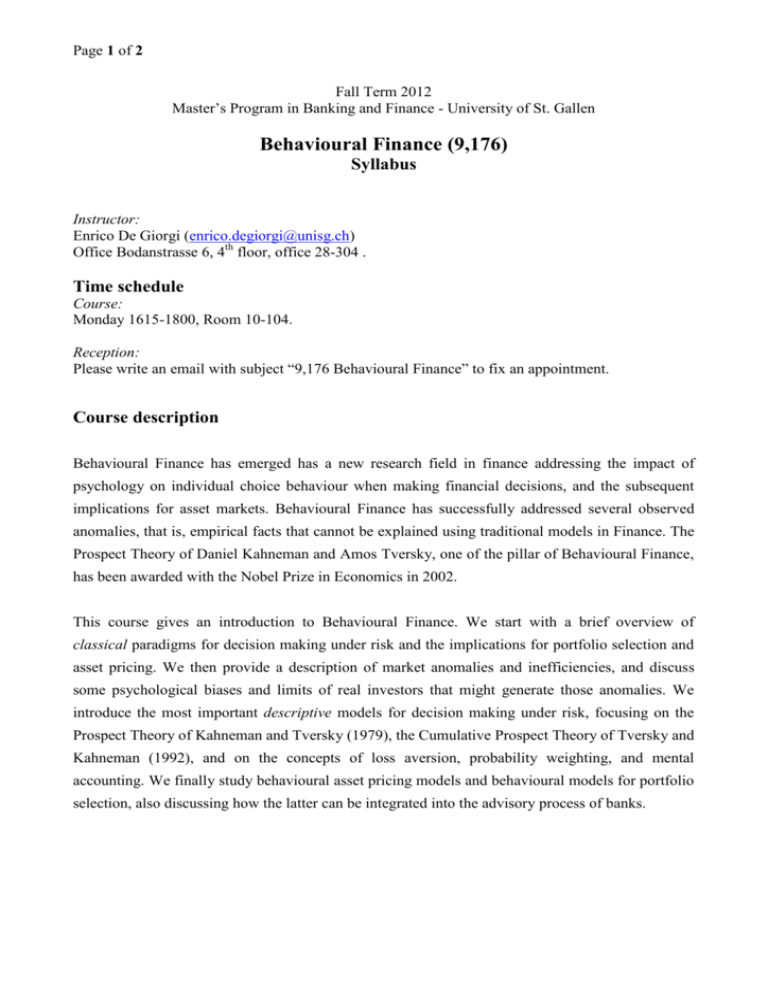
Page 1 of 2 Fall Term 2012 Master’s Program in Banking and Finance - University of St. Gallen Behavioural Finance (9,176) Syllabus Instructor: Enrico De Giorgi (enrico.degiorgi@unisg.ch) Office Bodanstrasse 6, 4th floor, office 28-304 . Time schedule Course: Monday 1615-1800, Room 10-104. Reception: Please write an email with subject “9,176 Behavioural Finance” to fix an appointment. Course description Behavioural Finance has emerged has a new research field in finance addressing the impact of psychology on individual choice behaviour when making financial decisions, and the subsequent implications for asset markets. Behavioural Finance has successfully addressed several observed anomalies, that is, empirical facts that cannot be explained using traditional models in Finance. The Prospect Theory of Daniel Kahneman and Amos Tversky, one of the pillar of Behavioural Finance, has been awarded with the Nobel Prize in Economics in 2002. This course gives an introduction to Behavioural Finance. We start with a brief overview of classical paradigms for decision making under risk and the implications for portfolio selection and asset pricing. We then provide a description of market anomalies and inefficiencies, and discuss some psychological biases and limits of real investors that might generate those anomalies. We introduce the most important descriptive models for decision making under risk, focusing on the Prospect Theory of Kahneman and Tversky (1979), the Cumulative Prospect Theory of Tversky and Kahneman (1992), and on the concepts of loss aversion, probability weighting, and mental accounting. We finally study behavioural asset pricing models and behavioural models for portfolio selection, also discussing how the latter can be integrated into the advisory process of banks. Page 2 of 2 Content 1. Introduction 2. Noise Traders and Application to the Closed-End Fund Puzzle 3. Psychology For Finance 4. Behavioural Asset Pricing and Portfolio Selection Exam Oral Exam, 20 minutes, will take place on Monday, December 17, 2012 and Tuesday, December 18, 2012. Registration is required before December 2, 2012: write an email to Ms. Fadrina Denoth (fadrina.denoth@unisg.ch) with subject “9,176 Behavioural Finance: Exam.” The schedule will be made available on StudyNet. Main References 1. Barberis, Nicholas and Richard Thaler (2003): “A Survey of Behavioral Finance,” Handbook of the Economics of Finance, Edited by G.M. Constantinides, M. Harris and R. Stulz, Chapter 18, pp. 1051-1121. Available at http://www.sciencedirect.com/science/article/B7GX84DXJCWN-F/2/6ecd46d1e00a53d527212a99dd5940c3 (restricted access from Uni St. Gallen network). 2. 3. 4. 5. (*) De Giorgi, Enrico (2011): Behavioural Finance, Lecture Notes, HSG. Montier, James (2002): Behavioural Finance, John Wiley & Sons, New York. Shefrin, Hersh (2010): “Behavioralizing Finance,” Foundations and Trends in Finance, 4(1-2), pp 1-184. Available at http://ssrn.com/abstract=1597934. Shleifer, Andrei (2000): Ineffcient Markets: An Introduction to Behavioral Finance, Oxford University Press, Oxford. (*) Main reference for the oral exam. Further information and lecture notes are available at http://studynet20.unisg.ch.
